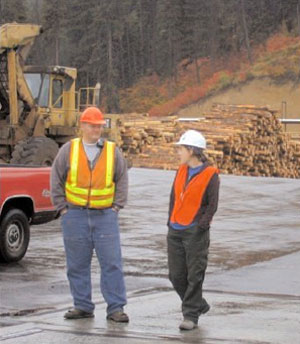Forester
Tasks & duties

Foresters may do some or all of the following:
-
plan and develop new forests
-
plan how to meet future demand for wood
-
plan silviculture operations (preparation, planting and pruning of trees) and the harvesting of trees
-
oversee the financial management of forest operations
-
manage the supply of materials such as tree stocks and fertiliser requirements
-
manage and co-ordinate silviculture crews to tend to trees or harvesting crews to fell trees
-
ensure the health and safety of crews and forest users
-
rate the performance of silviculture or harvesting crews
-
monitor and improve the health of forests
-
ensure that forest quality standards and environmental guidelines are met
-
direct fire-fighting operations
Skills & knowledge

Foresters need to have:
-
knowledge of forestry processes
-
knowledge of forest products and the forestry market
-
knowledge of forestry investment
-
knowledge of quality control
-
knowledge of environmental protection methods
-
knowledge of forest diseases and pests
-
knowledge of forest fire prevention and safety methods
-
knowledge of health and safety requirements in the forest, including first aid skills
-
decision-making and problem-solving skills
-
planning and time-management skills
-
good communication skills
-
computer skills
Entry requirements
To become a forester you need to have a degree in forestry science or a diploma in forestry management. You also need to have a driver's licence and a heavy vehicle licence.
Secondary education
Useful subjects for entry into tertiary courses in forestry include maths, computer studies, economics, biology and chemistry.
Training on the job
Skills are gained on the job. Courses are available in topics such as management, occupational safety and health, and fire protection.
Useful experience
Useful experience for foresters includes any forestry related work, such as work as a silviculture or harvesting forestry worker, or any work outdoors.
Related courses
Forestry Studies
Document Actions
